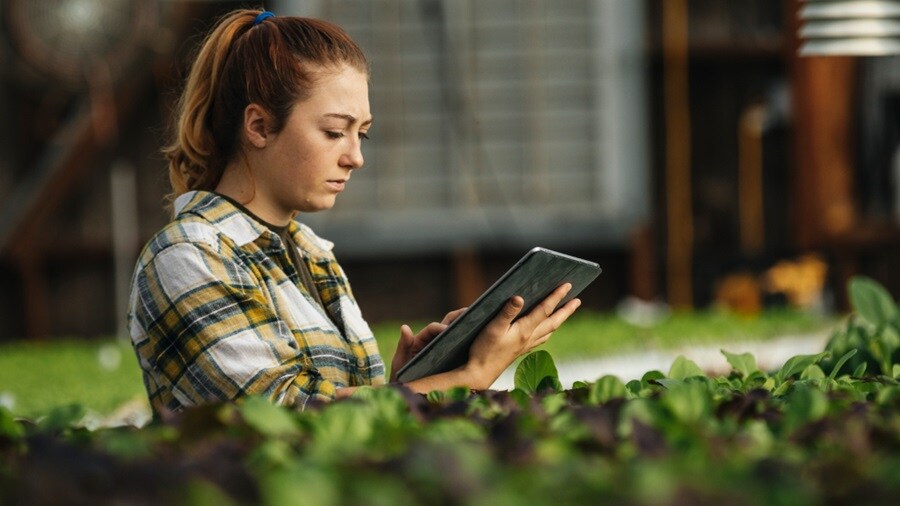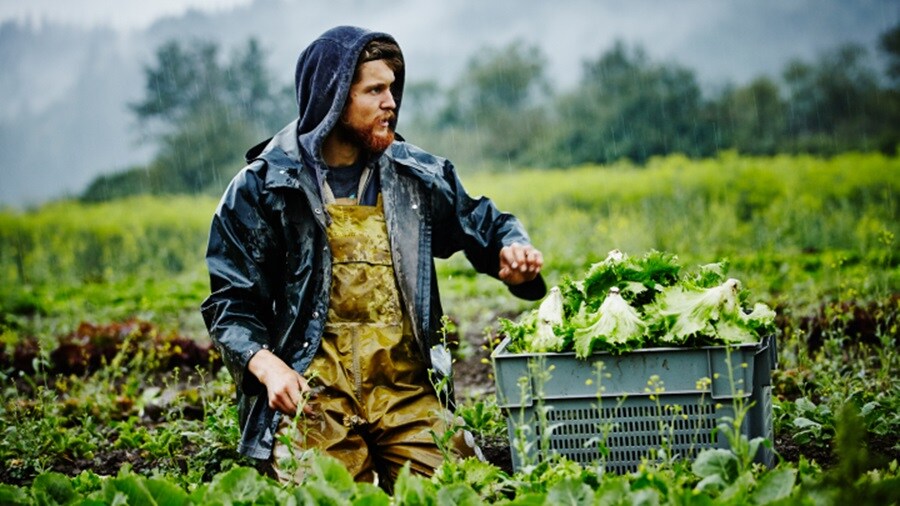Last year, we asked experts to predict some of the challenges the fruit and vegetable industry is expected to face in 2024. The consensus was that supply chain disruptions and climate change would pose the biggest hurdles for businesses in the sector.
At the recently held Fruit Logistica 2024 in Berlin, we spoke to several fruit and vegetable growers, importers, and exporters to see how last year’s predictions are shaping up and what trends they see in the coming months.

Achieving resilience in the face of disruption
Global supply chain challenges affect companies regardless of industry, and in our sourcing whitepaper, written in collaboration with Reuters, 26.4% of companies said they expect significant global logistics disruptions going forward.
For the fruit and vegetable industry, global geopolitical situations and the consequent supply chain disruptions seem to be the biggest threats, requiring them to increase their resilience and agility.
At One Banana, we source bananas, mainly from Guatemala and Ecuador to the EU. Due to the situation in the Red Sea, at the other end of the world, we saw challenges related to repositioning empty containers in time. Closer to home, Panama Canal situation caused issues with getting our products to market in time. To compensate for logistic hiccups, we are looking to utilise cold storage facilities and build up inventories in key markets, but all of that needs to be done in balance, as we are dealing with fresh fruits with limited shelf life
Growing sweet potatoes in Egypt and exporting them mainly to the EU and the UK has seen it’s fair share of challenges recently due to the geopolitical situation in the region. Our main concern now is shipping routes and the significant increase in shipping time on some, which affects the shelf life and quality of our products – not only how long the products can be stored in the supermarket, but also how long they stay fresh in consumers’ homes. We the new cold store facility in Rotterdam as a solution to this challenge, it will act as a hub for us, meaning when our client makes an order, we can ship the order from the hub and the client will have it within day
Supply chain disruptions don’t only happen on the ocean side but can affect other modes of transport and lead to long-term changes for the business. The key to a successful strategy in dealing with disruptions is to keep an open mind to new solutions, and find the right partner, with the right expertise, who can help deliver the solution.
Before Covid, our main means of transporting strawberries from Egypt to the UK was by air. Because of the short shelf life of strawberries, we needed the fastest transit time we could get, but with Covid, we saw a lot of challenges with rate fluctuations and space availability, which led to a drop in sales because we couldn’t send the volumes we used to send. We then needed to find an innovative solution that would allow us to deliver the same product on a new route and remain competitive in the market. We worked with the Maersk Egypt team on a new service of sending a modified atmosphere container to the UK. In the beginning, it seemed like a crazy idea, sending a short shelf-life product on a 10-day sail to destination, but air challenges made us give it a try. After the first trial, we saw strawberries arrive at destination in better condition than with air freight, and the additional transport time has not affected their shelf life due to precise temperature controls throughout the journey

Planning for unpredictable weather
Certain weather conditions at the time of growing or harvest can make or break the crop season.
Last year, extreme weather conditions in Spain led to a decrease in production of both fruit and vegetables and resulted in the smallest citrus crop in the past decade.
Likewise, very large crop output can lead to oversupply, putting pressure on prices and potentially creating waste.
We see climate change already having a major impact on melon production this year. In Brazil, the season is ending early due to either lack or excess of rain in certain areas, while in Central America, the season is starting early because of good weather conditions. Last year, too much rain in Spain led to a shortage of fruit, so this year, we see a lot of retailers worried about the supply and looking for other sources to guarantee the continuity of supply. An issue could then arise if there are no weather problems in Spain, but retailers have already secured alternative sources – what happens to the fresh produce that has already been scheduled from Central and South America? We could go from one extreme to the other, from shortage to oversupply
Even though we’re only in February, we can already tell that 2024 will see a lot of challenges. Besides the geopolitical situation, the weather is not helping – we either have too much rain in Ecuador or not enough rain in Costa Rica and Colombia. Working with Maersk, we ensure our products arrive in Europe and our facilities in key markets on time. We want to continue growing together with Maersk. Our volumes are growing year-over-year, and if we want to supply new customers, we need more bananas, and we need more containers. With Maersk, we always find a way to make it happen
Find out more about how our integrated cold chain solutions and our European cold store network can serve your unique needs.
无论您需要什么,我们都可以随时为您提供帮助
I agree to receive logistics related news and marketing updates by email, phone, messaging services (e.g. WhatsApp) and other digital platforms, including but not limited to social media (e.g., LinkedIn) from A. P. Moller-Maersk and its affiliated companies (see latest company overview). I understand that I can opt out of such Maersk communications at any time by clicking the unsubscribe link. To see how we use your personal data, please read our Privacy Notification.
By completing this form, you confirm that you agree to the use of your personal data by Maersk as described in our Privacy Notification.
